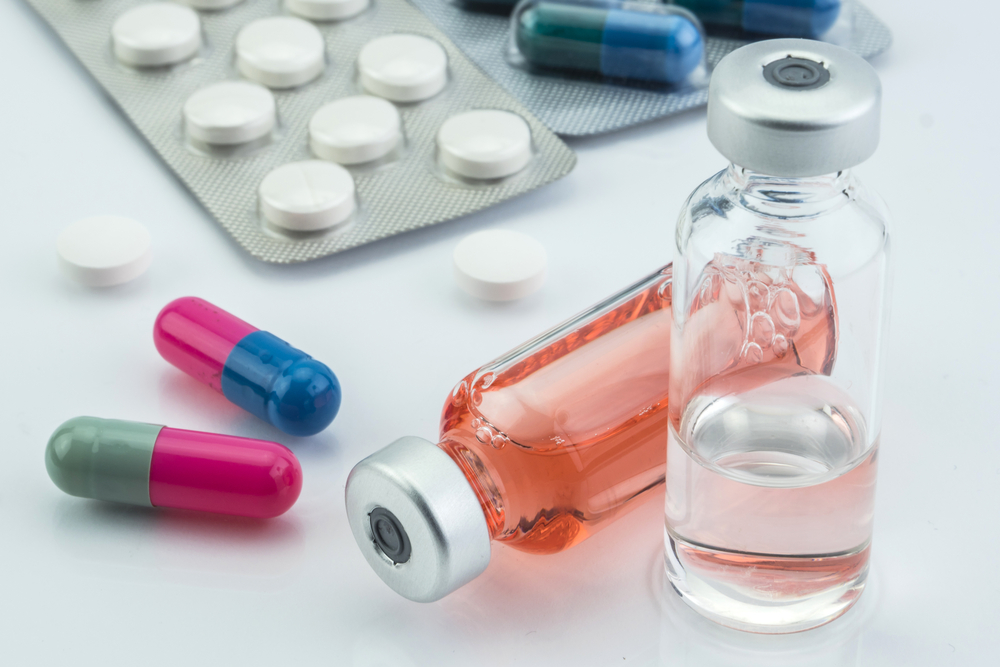Kyprolis Combo Yields Positive Results as Initial Treatment for Multiple Myeloma

A combination of Kyprolis (carfilzomib) and dexamethasone, already approved for relapsed and refractory multiple myeloma, may also be effective and safe as a first-line treatment for newly diagnosed patients, according to a study.
The dual combo yielded the highest response rates to date for a two-agent combination employed as an initial therapy for myeloma, and compared well in efficacy and safety with triple combos used for newly diagnosed patients.
As it rarely caused blood-related side effects, the combination may be particularly advantageous for newly diagnosed patients who have low blood counts.
The study, “Phase II study of carfilzomib and dexamethasone therapy for newly diagnosed multiple myeloma,” was published in the American Journal of Hematology.
Combo therapy with Amgen‘s Kyprolis (carfilzomib) and dexamethasone was recently approved in the U.S. and Europe as a treatment for relapsed and refractory multiple myeloma.
But there is evidence that adding Kyprolis to a primary regimen may also benefit newly diagnosed patients.
A clinical study (NCT01029054) showed that triple therapy with Kyprolis plus Revlimid (lenalidomide) and dexamethasone yields the highest response rates (proportion of patients who respond to therapy) reported to date for a first-line treatment in myeloma.
This regimen led to a 98% overall response rate (ORR), with a very good partial response or better in 81% of them.
Based on those findings, researchers at the Division of Hematology, University of Colorado School of Medicine, reasoned that adding Kyprolis to an initial therapy scheme might improve the response rates of recently diagnosed myeloma patients.
According to them, Kyprolis would enhance the efficacy of the BiRD regimen — Biaxin (clarithromycin) plus Revlimid and dexamethasone — which has proven effective as a first-line treatment for myeloma.
“[W]e anticipate that it will synergize with the previous BiRD regimen to induce greater reduction of tumor burden overall.” the researchers stated at the trial’s official site.
To test this hypothesis, the team carried out a Phase 2 clinical trial (NCT01559935) to assess the efficacy and safety of Kyprolis and dexamethasone as an initial treatment, followed by a consolidation regimen with BiRD, and a maintenance program with Revlimid alone.
The main outcome measure was the best response achieved by those patients who received at least one dose of the Kyprolis-dexamethasone double combo.
Secondary measures included the regimen’s safety profile and the effect of the combination on stem cell yield. The number of stem cells that are able to leave the bone marrow and move to the blood is important to allow for an autologous stem cell transplant to treat myeloma.
Kyprolis was administered in two dosing groups: 25 patients had a dose of 45 mg/m2 and 47 patients received a dose of 56 mg/m2, delivered into the vein.
The combination was given until patients achieved a maximum response, their disease progressed or they became intolerant. Response rates were measured at the end of each cycle.
The results showed that 65 of 72 patients enrolled achieved at least a partial response, corresponding to an overall response rate of 90%. These included 7% complete responses, 58% very good partial responses, and 25% partial responses. The remaining 10% of patients achieved stable disease.
In addition, the treatment allowed a sufficient collection of stem cells from the blood, making Kyprois plus dexamethasone a compatible regimen for transplant-eligible patients.
The combination demonstrated a safety profile consistent with that reported for Kyprolis in prior studies.
Nearly all patients (71 of 72) experienced an adverse event, although most were mild to moderate. The most common adverse events were insomnia, diarrhea, and fatigue.
A total of 44 severe or more serious events were observed, the most frequent being high blood pressure, low levels of lymphocytes in the blood, and lung infection.
The rate of severe or worse cardiovascular adverse events was 11.1%, with eight observed events.
As the current report focused only on response to Kyprolis plus dexamethasone, survival outcomes will be reported in the future, when the effects of the full regimen, including consolidation and maintenance therapy, are completed.
The Kyprolis combination led to the best overall response rates reported to date for a two-drug combo in newly diagnosed myeloma, researchers said. The results are comparable to triple combinations highly active as first-line therapy, such as Velcade-Revlimid-dexamethasone.
The use of a two-drug combination “also allowed a relatively narrow toxicity profile with certain common toxicities,” particularly blood-related adverse events, being scarce. “This may make [Kyprolis plus dexamethasone] induction a particularly attractive option in patients with [low blood counts] at diagnosis,” the report states.






